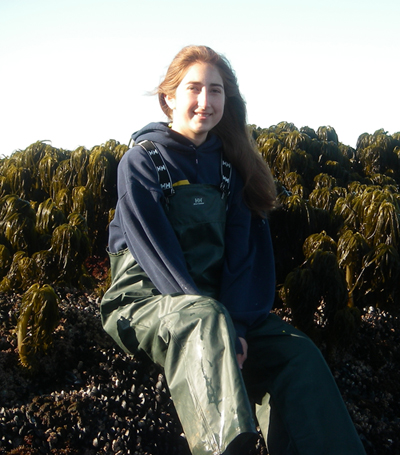 |
||
 |
||
| Home | People | Research | Publications | Contact Us | Teaching |
 |
Utilizing reproductive traits and water quality to predict potential algal blooms
Rosemary Romero I am interested in how species interactions and disturbance structure marine communities. More specifically, I'm interested in asking questions concerning which species of seaweeds recruit after a disturbance and why they recruit when they do. Ulva (sea lettuce) is commonly found growing on newly disturbed intertidal rocks and in the form of "green blooms" in coastal estuaries. The blades of this alga are annual and holocarpic, meaning that all cells within the blades can become reproductive simultaneously. This trait has led to the hypothesis of an eternal source of propagules that are always in the water column. I'm in the process of testing this hypothesis and investigating how variation in propagule availability might explain patterns of recruitment and green blooms. |
||
| Contact info: Rosemary Romero Department of Integrative Biology University of California, Berkeley 1005 Valley Life Sciences Bldg #3140 Berkeley CA 94720-3140 Phone: 510-643-9746 Fax: 510-643-6264 Email: rromero(at)berkeley.edu | |||
BACK TO TOP | |||
| University of California, Berkeley | Department of Integrative Biology | |||